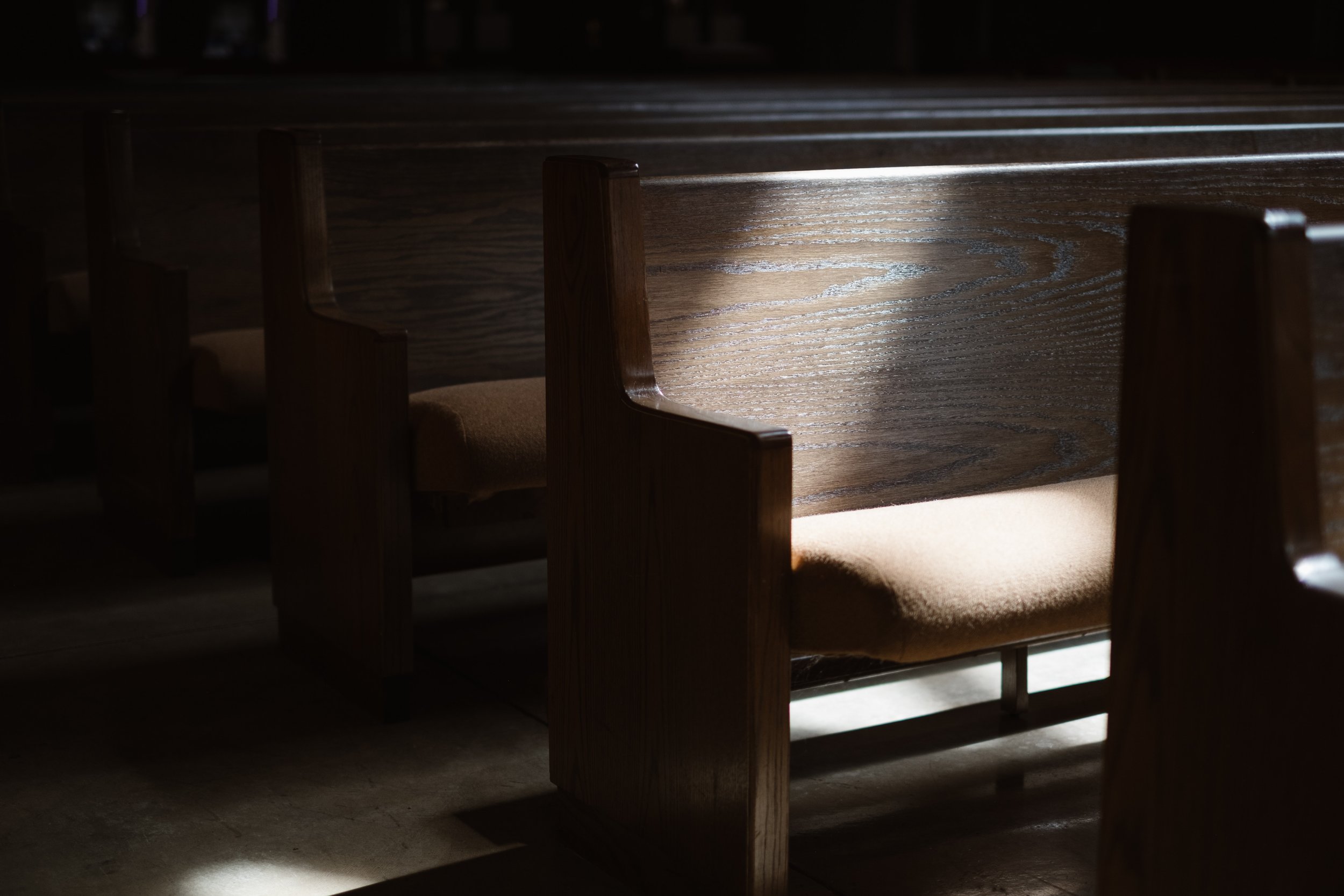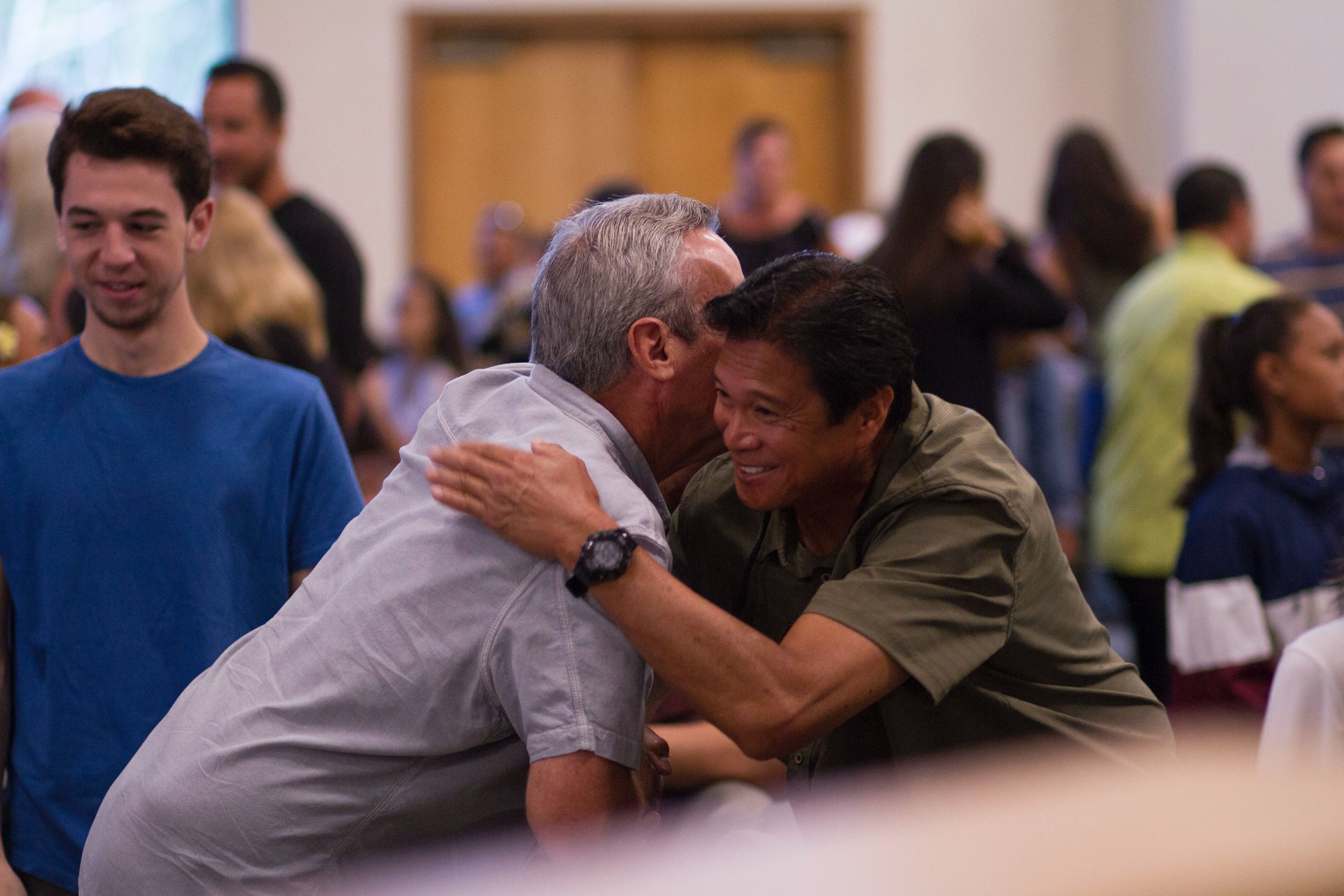In search of a new Sunday
I grew up in a time when most people were part of a church. Many of our neighbors and most of my peers at the public high school I attended had churches to call home. Some of my earliest and fondest memories are rooted at my childhood church. Such was life in the American South.
Fast forward to today and we find ourselves in a different world. The precipitous decline in church attendance we see in survey data bears out anecdotally in my lived experience. A majority of my Christian friends no longer identify with a local church. Most of the rest have left one church for another during the last several years. And while many of my non-Christian friends think Jesus is pretty cool, plenty of them believe that most churches don’t take him seriously. My Christian friends tend to agree.
Many who left a church did so because they were made to feel like it was the only option available to them. They long to call a local church home; however, they see similar bad experiences bleeding out of other churches in their community. Coupled to a toxic mixture of cultural elitism masquerading as Gospel truth and abuse or unkindness at their previous church, they have been given plenty of reasons not to risk stepping into a new space.
But the deep desire to be part of a vibrant, Jesus-centered and outward looking faith community often remains, sometimes persisting for years. It’s why so many who leave a church heartbroken and abused long for another faith community to help make them whole again.
I have a great deal of empathy for those who have been burned by a church. After working in the nonprofit sector for over a decade, I’ve met some genuinely fantastic, engaged faith communities. I’ve also been misled by others, with promises of support never materializing and doors promised to be opened staying shut. And roughly this time last year, our family departed a church we thought we’d be wed to for life. By the time we left, things were so broken beyond repair that leaving on decent terms wasn’t possible.
As the saying goes, I have the receipts.
There was a time when I felt like never stepping foot in a church again. Much of the church culture in my neck of the words is aggressively consumerist and in decline. Finding a joyful church that was trying to follow Jesus and love their neighbors magnanimously felt like it’d be akin to searching for a needle in a haystack. For months, I met up with various Christian friends and acquaintances who were in a similar place to try to figure things out together. It wasn’t an easy time, but I saw more spiritual growth in this time than I did over the last decade.
If you had told me back then that a year later we would have a new church home, I probably would have rolled my eyes. But that’s what happened. Some of the most common questions I get from readers are how do I know when I’m ready to try church again? and where do I even begin? I want to share a few of our experiences and things we learned on this journey. None of this should be considered prescriptive, just a description of what things looked like for us.
How I knew it was time to try, again
There wasn’t a single moment when I thought to myself I’m ready to find a new church! My wife was ready before I was. It took me a lot of processing past experiences, conversations with friends and family, reading books, writing, listening to podcasts and more to begin considering a new relationship with a local church. There are two areas worth touching on for our purposes here.
First, I came to terms with the uncomfortable reality that for much of my life, I’ve been misled concerning who God is, what the local church is supposed to be and how Christians are supposed to live. I wasn’t innocent either, having misled myself every time I knew something was off, but didn’t question it enough or as early as I should have. I’ve written about this before, so I won’t rehash it all here.
I’m still working through all the nuances of these lessons; however, even though I began rejecting large parts of the white American evangelical subculture years ago, my staying in it made me complicit. I had chosen to be part of an anomaly in broader Church history that was straying from Jesus and had little to no interest in reform. Once I started the process of repentance, I became less resistant to seeking out a new church to call home.
Second, this process helped me learn more about the many other thriving traditions in the Christian faith. I read and listened to Anglicans, black Pentecostals, Catholics, Episcopalians, Mennonites, Methodists, Presbyterians and global evangelicals, the latter of whom are often very different from white American evangelicals. I discovered that many of the negative things I had been told about these traditions just weren’t true.
I finally saw the global Church for more of what it actually is. I was naturally drawn to various parts of these traditions. I witnessed a lot more humility and sincerity toward Jesus and Scripture in all of them. I saw less of the cultural elitism common in white American evangelical spaces. At some point, my resistance gave way to a real desire to be a part of this church, the global one.
Where we began
All of this delivered a freedom and desire to find a new faith community. Similar to a lot of you reading this though, our family immediately ran into the where do we even begin looking for a church question, for two reasons.
The first stemmed from our own cultural baggage. We came out of an inward-looking church that spoke very highly of itself, rejected critique and basic questions and scoffed at other local churches and prophetic voices in other Christian traditions. There were individual exceptions to this, but not enough to check this elitism. And I was still infected even though we walked away. Looking back, it’s one of the main reasons my initial response after leaving was having no desire to find another church. If this really was the best the Church had to offer, as I was told, why would I want to be a part of it? And if the unhealthy cultural practices I experienced were the only way, as I was told too many times to count, how was I supposed to find a healthy version of it?
Thankfully, the Gospel really is good news in ways we don’t always consider. Jesus and the apostles never gave us a single way to do church. They knew well that the local church would look different as it went into various cultural contexts. What they did provide is a lot of good guidance — most of Ephesians, as just one example — strong calls for diversity in community (Acts 8:5–8) and warnings about what not to do (Mark 10:41–45), none of which justify creating a legalistic religious system. In fact, much of Jesus’ ministry was rejecting the legalism of his day (Luke 11:37–54). Two thousand years later, we humans remain enculturated creatures with the gift of a wide space to craft the church in ways that meet the needs of our local contexts and challenge the systems of oppression and legalism around and within us.
For better or worse, the local church will always be enculturated and constantly impacted by the broader culture around it. We are supposed to be separate and in not separate and removed from the world around us (1 Thessalonians 4:9–12). Holding these experiences in tension and navigating their nuances is not always easy, but they’re also not a vice. Removing oneself from the world is a vice, as it creates a church culture in which people aren’t capable of talking openly about how their beliefs impair their ability to love God and their neighbors.
Fully arriving at these Gospel truths in the context of the where do we even begin looking for a church question was refreshing and opened up the many doors of the global church found in the local context to us. We were liberated by Christ and his global church, rooted in history, to seek out a local church that did not fit the often strict cultural standards of white American evangelicalism. Again, the Gospel really is good news.
While this first reason was freeing, the second was more restricting when we examined our local context. One of the most segregated places in the United States today is the American Church, a reality driven by the white supremacy that has deep roots reaching back to before the founding of our country. We get a double dose of this here in my home city of Memphis, where Dr. King was assassinated, our city and suburbs are still mostly segregated in some disturbingly creative ways and truly multiethnic churches that love Jesus and their neighbors are the exception, not the rule. And it seems that a lot of people across the country are fine with situations like this.
With Jesus, Scripture and our local context in mind, our family learned that we needed to search for a local church engaged in three ways:
Unity in diversity, not sameness
Ethnic, theological, political, socio-economic, cultural diversity…we wanted all of it (Ephesians 2:11–22), even if it sometimes made us uncomfortable and exposed our own cultural blinders (Ephesians 4).
Instead of having lengthy statements and silly position papers on various cultural practices that create a congregation of sameness, having broader views built on central creeds of the historic Christian faith — like the Nicene Creed, as just one example — can help people more easily find unity despite differences in other areas. Just as important, the actual culture of the church needs to be striving to live up to these beliefs in noticeable ways because they are constantly being revisited (Galatians 6:7–10).
Imperfection over systemic unhealth
No church is perfect, but there’s a big difference between having flaws and striving to do better compared to enforced systemic unhealth.
Imperfection is a result of the human condition. Churches will make mistakes, leaders will come up short and congregants won’t always see eye to eye because churches are communities of people. People are imperfect, therefor institutions will be imperfect. It’s what grace is for (Ephesians 4:1–7).
Enforced systemic unhealth is something else entirely. It’s when pastors, elders and/or other elite congregation members are actively crafting or maintaining an inward-looking culture rooted in sameness and masquerading it as “Gospel truth” (Ephesians 4:14,25–32). In his helpful essay for The Atlantic, social psychologist Jonathan Haidt writes “The most reliable cure for confirmation bias is interaction with people who don’t share your beliefs…But when an institution punishes internal dissent, it shoots darts into its own brain.” While there are many manifestations of enforced systemic unhealth in churches today, some of the most recognizable results are people leaving while citing abuse and unwelcoming environments, aging and radicalizing congregations and inward-looking faith communities that attack and push out those who have legitimate concerns. Enforced systemic unhealth scoffs at grace and sees those it harms as weak or less than them.
To be clear, imperfection in a church can still be difficult to deal with and can cause real problems. But enforced systemic unhealth doesn’t allow for self-created problems to be solved in redemptive ways.
Engaged community over consumer culture
Finally, we needed a church that extended the Christian faith well beyond Sunday. I’m not talking about a lot of events or studies you can attend during the week. Those things can be useful, but if that’s mostly what is pushed and pursued by a congregation then it’s a telltale sign of a consumer culture, with such events being tightly controlled and the emphasis focused on enforcing a culture of sameness instead of nurturing oneness in diversity. Such a culture merely makes a church busy, not productive, thriving and healthy.
True discipleship, on the other hand, leads to an outward looking church that joyful engages the world in quiet, but tangible ways (1 Thessalonians 4:9–10). Congregants feel empowered to act on their own within and outside the church’s walls and do so (Galatians 6:1–10). The result is that if such a church ever closed its doors, the broader community would feel the pain of the closure and mourn. This isn’t a revolutionary concept. The early church was considered radical and countercultural not because they spurned the Roman Empire via culture wars and pursuit of political power, but because they served the oppressed and downtrodden in their communities. They didn’t live to be countercultural, they lived for the Gospel in ways that brought goodness to all, with a side effect being that they became countercultural.
Closing Thoughts
As I mentioned near the beginning, none of this should be considered prescriptive. This is merely a description of what our journey has looked like in our specific context. Some people don’t have the option of looking for a new local church. Over the past several months, I’ve received more than a few messages from smaller town readers scattered across the American South mentioning that churches in their area are in a race to the bottom.
I honestly don’t have an answer for such a situation besides reexamining what church even is. At its most basic form — with all the trappings of American culture stripped away — church is a translation of the Greek word ekklesia, which takes on a few different meanings such as called-out ones or an assembly. It’s not about a building. It’s about believers coming together. Maybe a few believers meeting once or twice a week in a living room, backyard or local bar and just figuring things out meets the definition of church (Matthew 18:20). It did for me for a season. It’s how some house churches begin.
Regardless, as I’ve reflected on these things while writing the past few weeks, I have come to understand that there are deeper issues behind what some have said the central question of this journey is: how do you trust a local church, again?
Deep down, I think many of us understand that this journey is just as much about learning how to deal with betrayal, moving forward when closure is denied and learning — maybe for the first time — what trust in community even is.
Many of us came out of church subcultures in which we were jackhammered into believing that we couldn’t trust ourselves. We were indoctrinated into a lie that we must give blind trust and endless grace to bad leaders and abusers at all costs while leaving none for ourselves and others. This is one of the core reasons we stayed in unhealthy places far longer than we should have. We don’t know how to trust within a communal context because, through bad teaching and direct experience, we all were taught to believe that no one could be trusted.
This betrayal extends well beyond ourselves. It wasn’t just that our blind trust and grace given were weaponized back against us, it’s that the Gospel itself was betrayed in the process. The most basic teachings of Jesus were broken. Our ability to think for ourselves was taken. And some of us are grappling with the reality that we perpetuated the betrayal and covered up the underlying issues. We betrayed ourselves just like we were taught to do, and we were committed to the bitter end.
We will not be able to trust a local church again until we learn to trust ourselves. Not the kind of pompous, blind trust that bad leaders and abusers demanded of us, but the kind of trust that is real. A trust that allows us to see what is right in front of us for what it is and make sound judgements. A trust that recognizes our imperfections and shortcomings while valuing our worth (Psalm 139:13–15). A kind of trust that doesn’t set ourselves up for abuse. A trust that comes with grace for our former selves and for those on similar journeys.
Trust in all good forms requires courage. It demands risk. But it also asks for time. Time to process and time to grieve. Time for healing. Time for saying out loud the truth about our experiences and naming them as wrong. Time that some people don’t want you to have, but time that Jesus offers to you freely (Matthew 11:28–30). Learning to trust ourselves in this way — in Christ — informs us when we are ready to start moving forward again.
When we take this time, we begin to see the betrayal as so much more than just pain and grief. The betrayal itself is redeemed as a gift, a spark of hope that begins a journey to true freedom in Christ (1 Peter 4:12–13). Somewhere on that road we can begin looking for a new local church, an imperfect one that seeks trust in good faith. We can become who we are supposed to be: people being sanctified in the love of Christ within the context of community.
Deep down, we’re all searching for a lot more than a new Sunday. It’s okay to say so out loud.
I explore faith and American church culture from Memphis, TN. Never miss an article by signing up for my free newsletter or becoming a member. You can also subscribe to my podcast.




